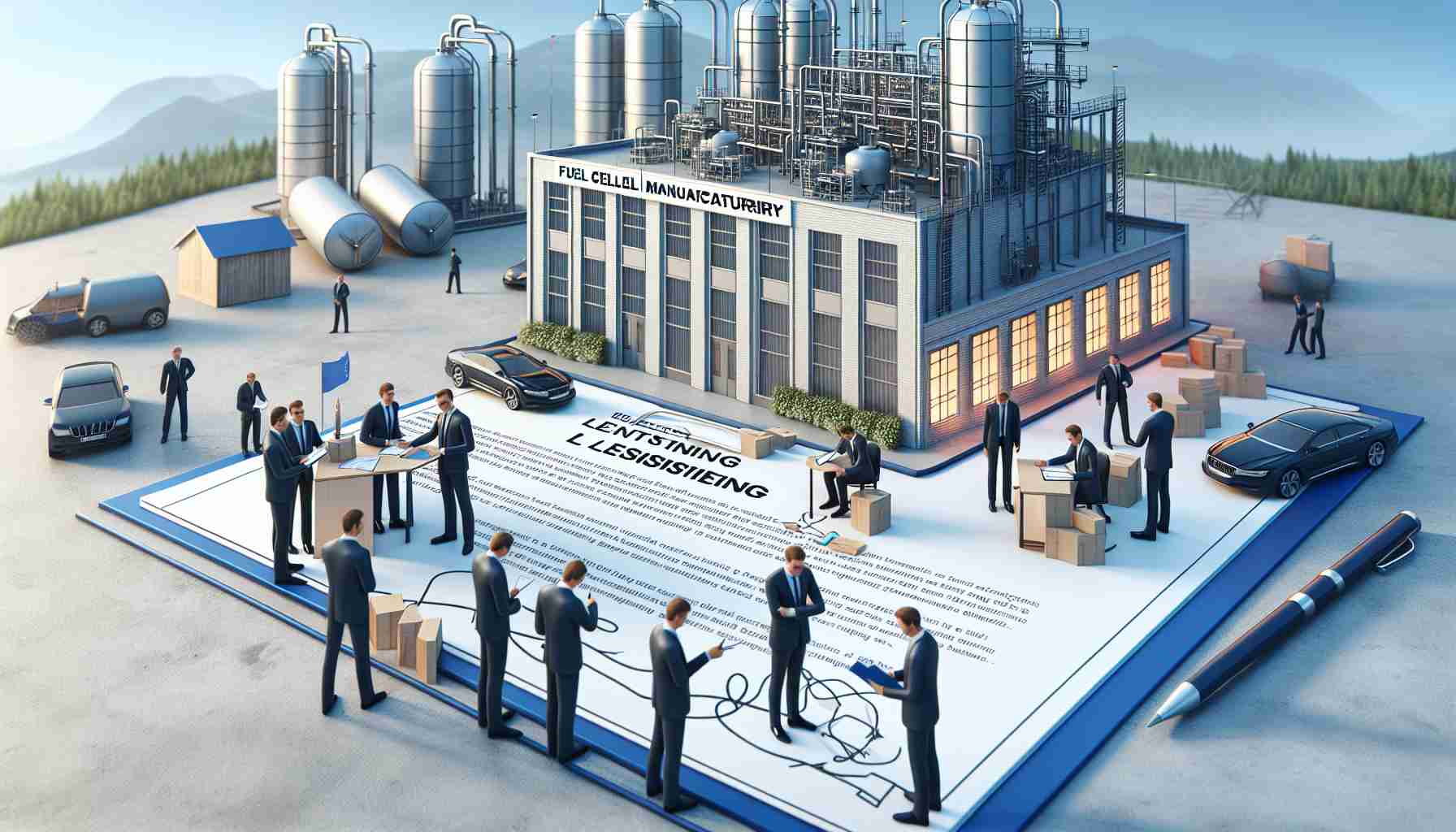Norwegian fuel cell manufacturer TECO 2030 has announced a strategic pivot towards a licensing model, as it faces regulatory delays and diminishing support in its home nation. The company, which has been developing a large-scale fuel cell manufacturing facility in Narvik, Norway, since 2021, believes that shifting to a licensing model will allow it to focus on advancing its core technology.
TECO 2030’s decision to shift away from in-house production reflects its commitment to global growth in the face of uncertainties and limited incentives from the Norwegian government. The company has expressed concern over the postponement of the Norwegian Government’s plans to allow fossil-fueled cruise ships in the World Heritage fjords until 2032, instead of the previously scheduled 2026. This change in plans has hindered the acceleration of zero-emission technology companies, including TECO 2030.
Recognizing the opportunities in international markets driven by government support and investments, TECO 2030 aims to take advantage of its new licensing business model. By focusing on licensing, the company believes it can tap into stronger demand in high-potential markets such as the US, India, and Southeast Asia, ensuring sustainable growth and solidifying its position as a leader in hydrogen fuel cell innovation.
TECO 2030 has already made strides in expanding its presence beyond Norway. It has established a joint venture in India with Adviat Infratech and holds an American entity. These strategic moves allow the company to capitalize on major funding programs and partnerships in these regions.
The shift towards a licensing model is not unique to TECO 2030. Other western fuel cell and electrolyser original equipment manufacturers (OEMs) have also embraced licensing agreements as a means to secure their futures. For instance, Norwegian electrolyser firm Nel signed a technology licensing agreement with Reliance Industries Limited (RIL) in India, enabling RIL to manufacture Nel’s alkaline electrolysers.
TECO 2030’s transition to a licensing model represents a strategic response to regulatory challenges in its home nation. By expanding its reach in international markets, the company aims to overcome limitations and drive sustained growth in the rapidly evolving hydrogen fuel cell industry.
FAQ:
1. Why is TECO 2030 shifting to a licensing model?
TECO 2030 is shifting to a licensing model to focus on advancing its core technology and to overcome regulatory delays and diminishing support in its home nation of Norway.
2. What concerns does TECO 2030 have regarding the Norwegian Government’s plans?
TECO 2030 is concerned about the postponement of the Norwegian Government’s plans to allow fossil-fueled cruise ships in the World Heritage fjords until 2032, which has hindered the acceleration of zero-emission technology companies like TECO 2030.
3. Which markets does TECO 2030 aim to tap into with its licensing business model?
TECO 2030 aims to tap into high-potential markets such as the US, India, and Southeast Asia by focusing on licensing.
4. How has TECO 2030 expanded its presence beyond Norway?
TECO 2030 has established a joint venture in India with Adviat Infratech and holds an American entity, allowing the company to capitalize on major funding programs and partnerships in these regions.
5. Is TECO 2030 the only company transitioning to a licensing model?
No, other western fuel cell and electrolyser original equipment manufacturers (OEMs) have also embraced licensing agreements to secure their futures. An example is Norwegian electrolyser firm Nel, which signed a technology licensing agreement with Reliance Industries Limited (RIL) in India.
Definitions:
– Fuel cell: a device that converts the chemical energy from a fuel into electricity through a chemical reaction.
– Licensing model: a business model where a company allows others to use its intellectual property or technology in exchange for a fee or royalty.
– Core technology: the fundamental technology or intellectual property of a company that sets it apart and drives its innovation.
– Zero-emission technology: technology that produces no harmful emissions or pollutants.
– Hydrogen fuel cell: a type of fuel cell that uses hydrogen as the fuel source to generate electricity.
Suggested related links:
– TECO 2030 Official Website
– Nel Hydrogen Official Website
